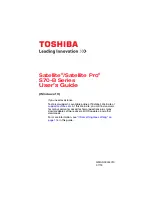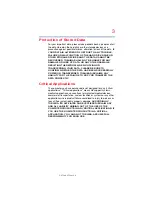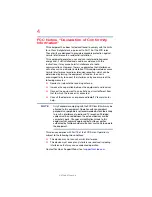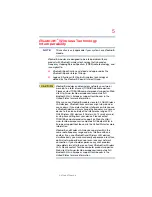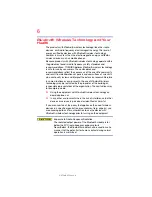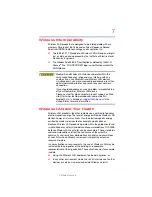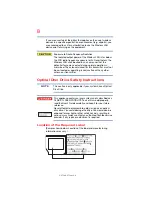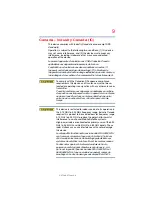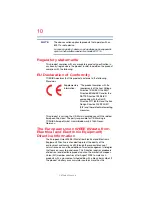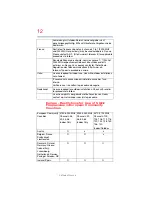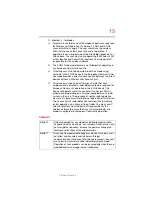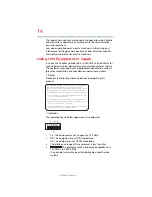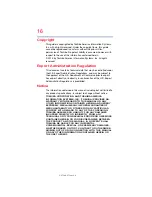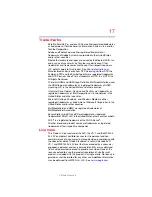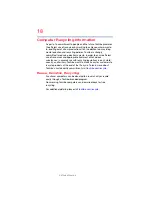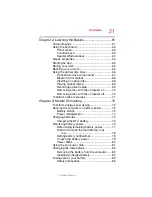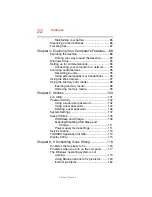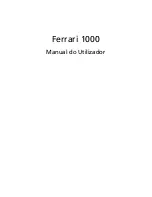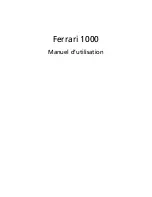
7
5.375 x 8.375 ver 2.3
Wireless Interoperability
Wireless LAN products are designed to be interoperable with any
wireless LAN product that is based on Direct Sequence Spread
Spectrum (DSSS) radio technology, and is compliant to:
❖
The IEEE 802.11 Standard on Wireless LANs (Revision a/b/g/n/
ac), as defined and approved by the Institute of Electrical and
Electronics Engineers.
❖
The Wireless Fidelity (Wi-Fi
®
) certification as defined by the Wi-Fi
Alliance
®
. The “Wi-Fi CERTIFIED” logo is a certification mark of the
Wi-Fi Alliance.
Bluetooth
and Wireless LAN devices operate within the
same radio frequency range and may interfere with one
another. If you use
Bluetooth
and Wireless LAN devices
simultaneously, you may occasionally experience a less than
optimal network performance or even lose your network
connection.
If you should experience any such problem, immediately turn
off your
Bluetooth
or Wireless LAN device.
Please contact Toshiba computer product support on Web
site http://www.toshiba-europe.com/computers/tnt/
bluetooth.htm in Europe or
in the
United States for more information.
Wireless LAN and Your Health
Wireless LAN products, like other radio devices, emit radio frequency
electromagnetic energy. The level of energy emitted by Wireless LAN
devices however is far much less than the electromagnetic energy
emitted by wireless devices like for example mobile phones.
Because Wireless LAN products operate within the guidelines found
in radio frequency safety standards and recommendations, TOSHIBA
believes Wireless LAN is safe for use by consumers. These standards
and recommendations reflect the consensus of the scientific
community and result from deliberations of panels and committees
of scientists who continually review and interpret the extensive
research literature.
In some situations or environments, the use of Wireless LAN may be
restricted by the proprietor of the building or responsible
representatives of the organization. These situations may for example
include:
❖
Using the Wireless LAN equipment on board airplanes, or
❖
In any other environment where the risk of interference to other
devices or services is perceived or identified as harmful.

